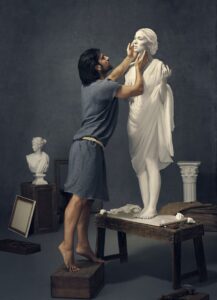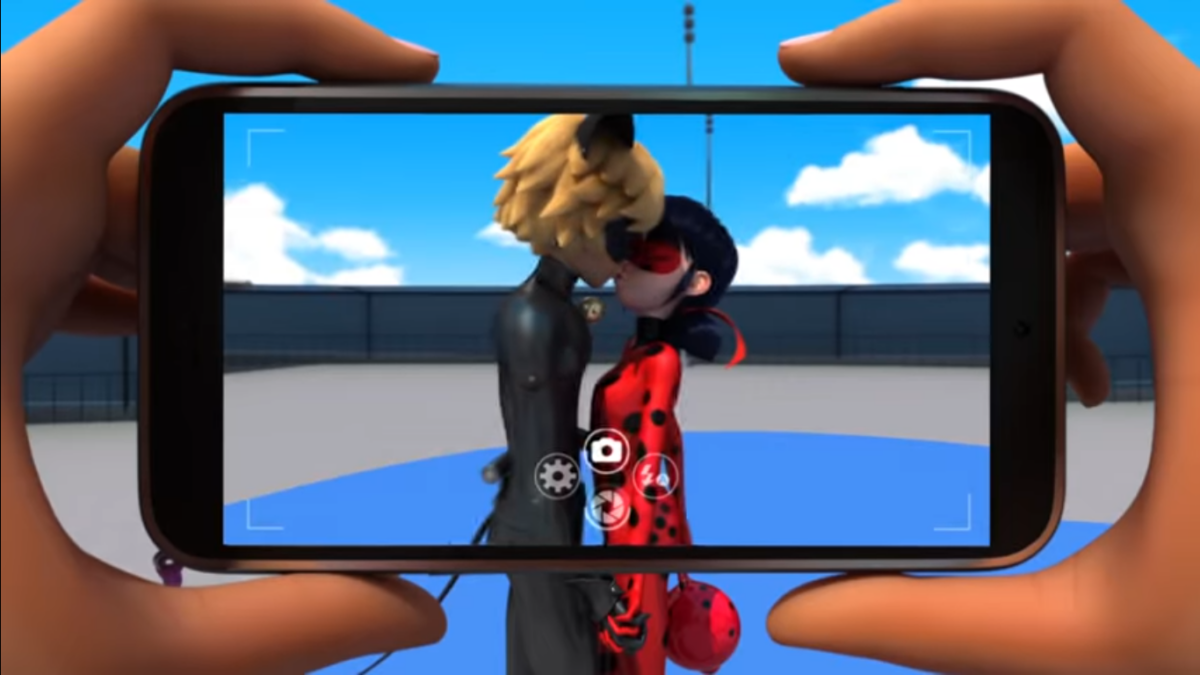In our present era, the avatars have become an essential part of our life. We all have developed some sort of persona that we use for different purposes on the internet. Maybe for trolling? Maybe for flashing our flesh on the popularity market of instagram? Or maybe just to destroy other players in an online first-person shooter? Is it possible that this new reality has fueled the mainstream fascination for superheroes, like those of the Avengers series? And what does this have to do with Miraculous Ladybug?
We employ masks now more than ever and the common consensus is that we use them to protect our true identity: just like a World of Warcraft player that on his real life could be just a simple normal geologist on a day to day job, but on the game he is the courageous “Farcor, defender of the Alliance”.
But is it really so?
I think an example that masterfully portraits the point that I am about to make is the 1994’s movie The Mask. Stanley Ipkiss (Jim Carrey’s character) is the epitome of a good hearted loser. Everyone takes advantage of him and he gets constantly emasculated by his landlady.
This changes one day when he finds by accident a wooden mask floating on the river of his city. He puts it on and he turns into this crazy over-the-top cartoonish character that can do everything that he -in real life- can’t, like punishing some mechanics that tried to scam him, beating some hooligans, getting THE GIRL (seductively played by Cameron Diaz) , and lastly, robbing the bank, where he works as a clerk.
Nevertheless a problem arises, when Tina (THE GIRL) wants to meet the Mask in person. Stanley does not know how to deal with this pickle so he seeks the advice of a renowned psychiatrist.
The psychiatrist, obviously annoyed by the presence of this apparent lunatic that claims that a wooden mask gives him superpowers, advises him -on the condition that he leaves his practice forever- to see Tina both as Stanley and as the Mask, obviously meaning that he has to have his adventurous side along with his vulnerable side in one person.
But of course, this results in Stanley hilariously taking his word literally and meeting her on a date firstly as himself, to then run away putting on the mask and to return as the Mask, that plays an overtly seductive version of a stereotypical frenchman.
Funny enough, this doesn’t work at all, when Tina escapes (a bit terrified by him) and the police try to catch him.
This is us, as people, trying to play too hard the role of the interesting “bad guy”, but instead making a joke of ourselves. Luckily Ipkiss finally realizes what he has to do to be complete. This can be recognized in the subtext of the whole story, which is the transformation of a shy and insecure man that is only able to express his inner desires and thus his true self through the mask. In the final scene of the movie the subtext is put on evidence, when Stanley Ipkiss -after having gotten the love of his life- and beaten the bad guys, he decides to throw the mask away (with a little help of Tina), thus being satisfied with the now complete version of himself.
Another paradigma that we have is the one of Superman, that is masterfully explained by Bill (played by David Carradine) in Quentin Tarantino’s Kill Bill vol.2:
“Now, a staple of the superhero mythology is, there’s the superhero and there’s the alter ego. Batman is actually Bruce Wayne, Spider-Man is actually Peter Parker. When that character wakes up in the morning, he’s Peter Parker. He has to put on a costume to become Spider-Man. And it is in that characteristic Superman stands alone. Superman didn’t become Superman. Superman was born Superman. When Superman wakes up in the morning, he’s Superman. His alter ego is Clark Kent. His outfit with the big red «S» -that’s the blanket he was wrapped in as a baby when the Kents found him. Those are his clothes. What Kent wears – the glasses, the business suit – that’s the costume. That’s the costume Superman wears to blend in with us. Clark Kent is how Superman views us. And what are the characteristics of Clark Kent? He’s weak… he’s unsure of himself… he’s a coward. Clark Kent is Superman’s critique on the whole human race. ”.
Analysing these cases we could extract two paradigmata:
- Normie + Mask = Superhero
- Superhero + Mask = Normie
Once having found this, we could now deepen ourselves in the endeavor of analysing both main characters of Miraculous Ladybug.
What is so beautiful about Miraculous Ladybug, is that Thomas Astruc plays with both paradigmata, when writing about the relationship between Marinette/Ladybug and Adrien/Chat Noir.
Marinette is a half chinese/half french teenager that has loving parents and good friendships at school being liked by everyone (with the exception of Chloé Bourgeois, of course). Nevertheless she is shy and insecure, especially in front of her crush and classmate: Adrien Agreste. In contrast to her real self, her hero-self is courageous and confident, two traits that her partner Chat Noir finds attractive.
On the other side of the spectrum, we have Adrien, who could be the poster boy of a perfect teenager: extremely good looking, well-mannered, dream-like and, in other words, politically correct in his demeanor. This side of him is highly attractive not only for Marinette/Ladybug, but also for all other girls in his school. Nevertheless, this persona is only achieved through the overprotectiveness and oppression exerted on him by his father. Thus, when he (Adrien) transforms into Chat Noir, he is flirtatious, a bit cocky and uninhibited. Everything that he isn’t, when he has to play the daily role of the perfect teenager.
In a nutshell, Adrian is in love with the courageous Ladybug, but doesn’t notice the shy and insecure Marinette. She, on the other hand, is infatuated by this poster boy that seems so perfect and kind, but ignores Adrien’s liberated attitude, when he wears the mask.
Somehow both are attracted to the idealizations of each other, to the somehow artificial construct that they have to wear to affront the many challenges that they have to deal with in their lives.

This concept is masterfully put into play in the plot of the fourteenth episode of the second season, when Marinette and Adrien are forced to put on their respective superheroes costumes for the sake of a music video. The suspense gets build, when they have to put on their last garment: the mask.
(min 10:32)
This is an ecstatic moment of possible recognition of the other beyond the mask. If Marinette puts on the mask, Adrien will know that Ladybug is in reality just an insecure and shy teenager, whereas Marinette will recognize that the perfectness in Adrien is just a bluff, to cover for his real cocky, uninhibited and satirical nature.
The mask is the door to the true self.
Slovenian Philosopher Slavoj Zizek explores this paradigma in his analysis of Nolan’s Joker. As we see in the movie, Nolan’s Joker constantly offers an inconsistent origin story of himself as a supervillain. Sometimes he says that he became the Jokes because his father was abusive, other times because his wife was beaten to a pulp by the mafia, etc. But the origin doesn’t matter. What the Joker is, it’s the mask itself and the actions that derive from this persona. Much as the character of Rorschach in Watchmen, that has such an intense identification with his super hero ego that he no longer is at all, the person that he was before he put on the mask.
Sometimes the mask is even more authentic than the “real persona”. As a matter of fact it could be more real.
Radwulf
22.10.2020
